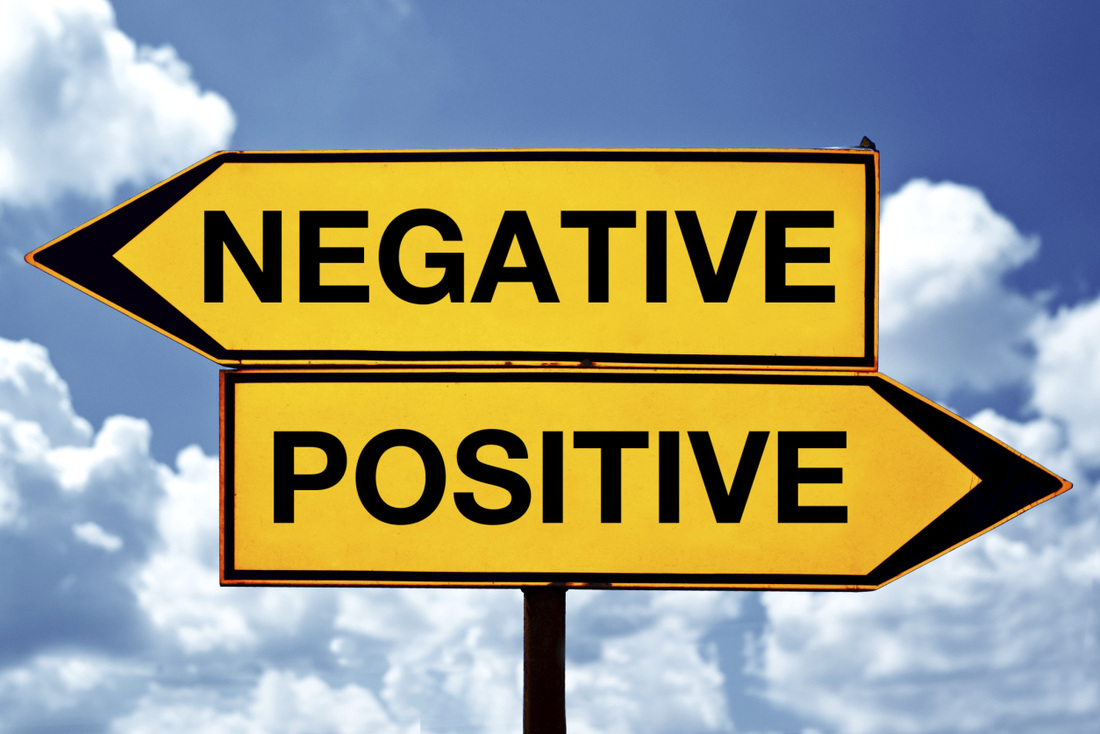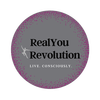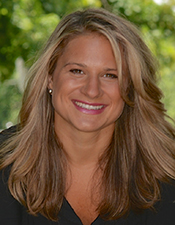 I never hesitate to admit that I probably initially got sober for the wrong reasons. I figured I could be even better at my job, and it would be easier to aim for perfection in all areas without the distraction of my drinking. One huge area that I wanted perfection in was my body. Its also worth mentioning that eating and weight disorders are directly related to addiction issues. My particular theory was if I quit drinking I would never wakeup hung-over, and therefore never skip the gym, or have anything other than a consistent, amazing workout. I figured I would eat nothing but leafy greens and power proteins and ease my way into a size 2 jeans in no time. So I’m sure you know what’s coming next…the whole…it didn’t play out that way….and it soooooo didn’t. In my first year of recovery I gained 10 pounds and continued to stuff my face with sugar and simple carbs. Before I quit drinking I prided myself on the fact that I NEVER liked sweets. I would go around touting, “Oh, I’m not a sweets person.” That’s just because I was consuming the sugar equivalent of two pints of Ben and Jerry’s Ice Cream every night in wine, vodka, or tequila. I was absolutely a sweets person but I didn’t realize it was all coming through my alcohol! If you are ready to cry your eyes out because Jan 1 was going to be the end of your drinking and the beginning of your new body, please read on! The good news is your body will be healing over time on levels you cannot begin to understand and in ways you never even thought of (adrenals, hormones, cortisol, serotonin, dopamine, etc.). The bad news is just like every other part of an addict’s world; it won’t ever seem soon enough for you. What I do know in dealing with addiction is that my body, mind, and spirit had a whole lot of healing to do, and still does. When I was finally so determined to get sober, everything else had to come last even if it meant a pint of cookie dough ice cream was a necessity instead of drinking. I am in my third year of recovery now and have finally been able to see with acute awareness how sugar and simple carbs make me feel horrible, not just immediately after consumption, but even for days after. I am also leveling out as far as truly understanding what type of workouts my body needs. I was a college athlete who just assumed I needed to continue pounding my body. What I have come to understand is that when I work out that hard I eat double the food to make up for it. After years of brutal self-talk and the “no pain no gain” approach, I am learning that my body thanks me when I use the softer approach of yoga, running, some weights, and lighter foods. When I take the time to meditate in the morning or even to sit and feel what my body needs, I am better able to address it accordingly. None of this was possible with alcohol in my life and not really even in super early recovery. For me, dealing with addiction and every other aspect of my life now is about doing the inside job first, and having the patience for the outside stuff to follow. The goal is to have a loving and healthy dialogue with my body instead of just pounding it into the pavement to look good. Something else that has helped in my understanding of addiction, is that typically when my addict mind thinks I am taking a shortcut, it ends up that path is actually the long and painful one. Choosing the slow and steady way to heal my body is finally paying off. RealYou Revolution, LLC. is New England's premier resource for cutting edge substance use disorder services. Advanced Intervention - Recovery Coaching - Family Support Services Case Management -Sober Companions - DUI/OUI Support Self Esteem Development - Anxiety Management Management
3 Comments
For an addict (I use this term to include alcoholic), feeling our feelings is a critical component to dealing with addiction and recovering from addiction. It is important to understand that someone who has been numbing their feelings for years is going to go through a phase in early recovery where they begin to feel feelings for the first time, and it’s typically a scary and unpleasant experience. I remember hitting about the four-month mark crying on the phone with a woman in the program telling her I would rather be trashed every day of my life then feel the way I did at that moment. Everything I had avoided dealing with was coming out of my cells, pains and struggles I had stuffed down for over 15 years.
Another important piece in understanding addiction is that the addict essentially stops growing emotionally around the time they first started using drugs and/or alcohol. For many of us the path started with pot or drugs as early as 12 or 13. This applies to anyone and everyone recovering from addiction whether 15 or 50. So recognize that now you have this person who has stopped the addictive behaviors but has started to have some uncomfortable feelings come up, who has the ability to deal with such issues on the same level as a teenager or preteen. This is why as many support systems as we can put in place are critical to the recovery process. Meetings, sober peers, therapists, recovery coaches, it doesn’t take one or two of these but ALL of these to increase the chances of success and long-term sobriety or the ability to bounce back quickly from a slip. Even after a significant amount of time in recovery, having feelings come up is risky. The addict wants to instantly “fix” the feelings and have control over numbing them or making them go away. So aside from the initial support systems a person must develop the proper coping skills that work for him or her. This even applies to physical feelings… I know every time I got sick in early recovery I wanted to drink because in the end that was what I did to feel better. A person cannot simply be told what works for them, they have to learn to develop and understand these coping mechanisms as they see fit for themselves. The key to feeling negative feelings is not to sit in the pain to sulk and stay depressed; it is to process through these feelings until they have left us. Taking a line from the wonderful Pema Chodron: “ The best thing you can do is learn how to fail really well, to hold the pain of things happening that you really don’t want to be happening … to experience the rawness of vulnerability … and to know the experience of when something terrible happens it means an opportunity for you to evolve into a better place, a new experience”. In the end, life happens; we must all understand that moments and feelings pass, yes, both the bad and the good. The beauty of life in recovery is being able to recognize this, be in moment, and ride the wave. RealYou Revolution, LLC. is New England's premier resource for cutting edge substance use disorder services. Advanced Intervention - Sober Companions - Recovery Coaches - Family Support Services - Case Management -DUI/OUI Support - Anger Management Self Esteem Development - Anxiety Management  A major part of overcoming addiction and sabotaging behaviors is learning to change our perspective. We can be the victim or we can be the person who has been presented with new opportunity. Remember that negativity can be an addictive behavior in and of itself. Last week I brought a client to what was for me the worst 12-step meeting I have ever attended. The message didn’t resonate with me at all and it seemed as though there was more talk of being in the problem vs. living in the solution. Three years ago there is no way I would have sat through 10 minutes of that meeting let alone complete the hour having gained quite a bit. During the initial moments of the meeting I noticed myself becoming frustrated that the speaker was going on and on about only his perils with drugs and that every other word was “F@#!”. He seemed to be rifling off drug addiction statistics out of nowhere as if he was the all mighty expert. While he was at one time homeless and his story was nothing like mine, I suddenly couldn’t believe how ridiculous I was being and how “in my old energy” I had become. I was able to quiet the judgmental mind and look for all of the ways I could identify instead of compare. I looked for things I could GAIN during the meeting vs. count the ways it was a waste of my time. Also, instead of reacting impulsively, I relaxed, breathed, and settled into my body. I thanked the universe for showing me where this disease very well could have brought me. I also thanked the universe for the fact that even though this man was not directly helping me, in speaking he was most likely helping himself and certainly some others in the room. I looked around at everyone in there and recognized that each and every one of us was fighting out own battle and that the beautiful thing is that we were all there to better ourselves. Because I didn’t walk out of the meeting, I was lucky enough to hear some wonderful people speak at the end. I was struck primarily by two young men in their 20’s who both felt like “they shouldn’t say much since they are really new to the program”, and it reminded me number one of how equal we all are, but number two that I was once the newbie who thought I was less worthy because I didn’t have years of sobriety. There was another young man in his 20’s whose ride ditched him at the last minute but he was still able to get to the meeting. Now that was inspiration, he had every excuse in the world as to why he didn’t have to be there, but he was. Because I like to force myself to speak as frequently as possible, I raised my hand. I sincerely thanked all of them for being there that day and for reminding me of things I can’t ever forget. But in my mind I was also grateful to be humbled and to be aware of the fact that I can’t control many things in my life, but I CAN control my behavior and my attitude and my perspective! The concept of Recovery Coaching has been utilized for years but it is just recently being brought back into mainstream recovery. There are so many different ways people use the term Recovery Coach and ways organizations employ people with this title. At RealYou Revolution we believe a Recovery Coach is someone who has gone through their own journey with addiction and can use that experience to assist others in moving through the recovery process. We believe therapists, sponsors, and professional recovery coaches are the foundational trifecta critical in helping people turn their life around. Below are just a few ways a coach makes the difference:
1) Navigating the Recovery World – Recovery Coaches can get to know you and figure out which methods of treatment might be the best for you to start off with. They also typically have connections within the Substance Use Disorder field and can assist with admissions and insurance challenges. A good recovery coach will continue to stay in touch with treatment centers throughout the process and adjust course accordingly along the way. They will also be the one solid link in the continuum of care, for example, guiding the client from detox to inpatient to outpatient to sober living, etc. 2) Around the Clock Availability – Because Recovery Coaches are not therapists’ restricted by state licensure, and they are not sponsors who kindly donate their time, they should be available 24-7 when a client is in need. This means if you are concerned about using at 1:00am and call your Recovery Coach, you should be able to expect them to answer for support. This is a invaluable resource in the early stages of sobriety. 3) Family Support – Addiction is a family disease. Whether the issues are from past family troubles or the family has just gotten sick with the addicted person, there is ALWAYS work to be done here. What good is it to send your child to treatment and not expect assistance for the rest of the family? A strong Recovery Coach will identify where the work needs to be done and connect the family with the proper resources. Coaches can also assign specific activities for various family members to work on in accordance with areas needing attention. 4) Power of Example – A Recovery Coach should be all of the things that one aspires to be. While no one is perfect, a strong coach will be healthy, fit, confident, happy, and well balanced. There are obvious benefits to spending time with a coach who has their life together, who is thriving day to day, and is a living breathing example of what is possible in recovery. Putting down the drink or drug may be enough for some, but it is not TRULY living in recovery where one is growing and learning at all times and reaching their highest potential. 5) Judgment Free Zone – Many people who struggle with addictive behaviors also have issues with beating themselves up and self worth. What they aren’t used to is unconditional listening and support. A Recovery Coach is a safe person the client can trust and go to for anything. If a client relapses, their recovery coach should be one of their first calls knowing it will provide the assistance needed and not a scolding. There is a time and a place for everything and coaches understand this well. RealYou Revolution, LLC. is New England's premier resource for cutting edge substance use disorder services. Advanced Intervention - Sober Companions - Recovery Coaches - Family Support Services Case Management -DUI/OUI Support - Anger Management Assistance - Self Esteem Development - Anxiety Management Tonight. But I was coming home from the gym, not the bar. And I was not drunk driving. Three years ago at this time I would have been well on my way to a good buzz and you see, I thought I was also the world’s greatest drunk driver. Invincible. Every day I thank the universe that I never physically injured anyone during this incredibly reckless time in my life. Addiction is a horrible thing. It’s the only disease that tries to convince you that you don’t have a disease. I thought my drinking was normal because everyone I surrounded myself with partied like I did, but it didn’t make it right. All I can say is I am completely grateful to be able to look a cop in the eye without fear of going to jail. I have replaced negative addictive behaviors with positive activities. I have overcome some major obstacles that presented themselves when I was most vulnerable. I have started a business to help others overcome addiction and behaviors they continue to do despite the negative consequences. I have changed my life. I no longer need go to bed on New Years Eve knowing that any resolutions I make will fail within a month. Now because I am in recovery, and because I am sober, I can face anything and everything that comes my way. I am grateful that tonight I did not get a ticket for going less than 10 miles over the speed limit. But I am more grateful that I was reminded of how far I have come and the fact that no one else is in danger this evening because of my decisions. Please, be safe tonight, and if you are ready to face your life on life’s terms and need some help, I hope to hear from you.
RealYou Revolution, LLC. is New England's premier resource for cutting edge substance use disorder services. Advanced Intervention - Sober Companions - Recovery Coaches - Family Support Services Case Management -DUI/OUI Support - Anger Management Assistance - Food Addiction -Self Esteem Development - Anxiety Management There are numerous ways that those of us with addictive behaviors and tendencies continue to self-sabotage, long after a drink or drug is out of the picture. One such way is when we over promise and under deliver. If you do this, make the commitment to yourself to stop IMMEDIATELY, like this minute. Stop pretending that people can’t see through your BS. Doing this is a direct reflection of your self-worth and how you show up to life. If you make commitments and don’t stick to your word, if you say you will be somewhere at a certain time and show up late, you are really saying, “ Well, self, I don’t think we are worthy of follow through, so therefore nothing else in our life is either.” Let’s also take into consideration respect for the other parties involved. Your word is your bond not only to others but also to yourself. I have known many people working on recovery who are chronically late or don’t do what they say they will do. Your inability to set healthy boundaries with yourself and others such as “ I need to go now or I’m going to be late for my plans” is really giving a big fat F-You to the person you are late to.
So how do we fix this you ask? Make the commitment from this point forward to under promise and over deliver, and work on it. When we are not in active addiction it is imperative for the motor between our ears to quiet down and slow down. Once we slow ourselves down, it becomes easier to maintain a schedule and know when to say “yes” and when to say “NO”. If it’s not a “Hell Yes” it should be a “Hell NO”! You can do it! Progress, not perfection! RealYou Revolution, LLC. is New England's premier resource for cutting edge substance use disorder services. Advanced Intervention - Sober Companions - Recovery Coaches - Family Support Services Case Management -DUI/OUI Support - Anger Management Assistance - Food Addiction -Self Esteem Development - Anxiety Management Tonight on the news there was a report about 1 in 10 binge drinkers only being "problem drinkers" and not "alcoholic". As I have always said, in the end for me, I was sick of trying to "define" if I was or wasn't an alcoholic. It was about me knowing that I deserved more from the world and the world deserved more from me. Forget stats and definitions, each and every one of us knows deep down if we are being %100 honest with ourselves or not. For me, regardless of everything I lost in early sobriety, I still was able to wake up (for the first time in my life) knowing I was true to myself. It didn't matter what worked or didn't work for anyone else. The lies and justifications I told myself were NOT working towards me living to my highest potential. In my mind, that is addiction, as Tommy Rosen says "Any behavior that you continue to engage in despite the negative consequences that the behavior leaves in its wake". And that's accurate enough for me. People can call it what they want, and they can also choose to exist for their entire life in a fog. But I have decided that's not for me, and I couldn't be more grateful that I took that leap of faith.
If you are looking for help on an intervention, or learning how to overcome addiction, call or email us today! 774-329-4393 [email protected] |
about the master coachDanielle, the Founder & Master Coach of RealYou Revolution, is a woman in long term recovery with a passion for helping others overcome their own personal demons – whatever they may be.
|
Location |
|




 RSS Feed
RSS Feed